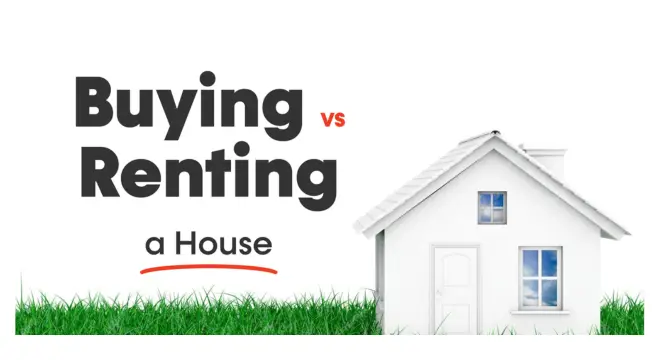Everything You Should Know Before Selling a Hawaii Home with a Death History
Selling a home is already stressful, but when the property has seen a death, things can feel even more complicated. I’ve worked with clients in Hawaii for years, and I’ve seen firsthand how uncertainty around disclosure laws and local customs can leave sellers anxious—and buyers hesitant. You might be wondering: “Do I have to tell anyone about what happened here? Will this affect my sale?” In Hawaii, the answers aren’t always black and white.
Between legal obligations, cultural expectations, and the real concerns of potential buyers, navigating this process requires clarity, respect, and a bit of strategy. In this guide, I’ll walk you through what you need to know to sell your home confidently, avoid legal pitfalls, and honor the unique cultural context that makes Hawaii’s real estate landscape so special.
Here’s the fully rewritten section in a natural, first-person (“I + You”) tone, elaborated with short paragraphs, bullets, and a single external link used naturally:
Understanding Hawaii’s Death Disclosure Law
Selling a home in Hawaii after a death can feel tricky because the rules aren’t always clear at first glance. I’ve guided many sellers through this process, and what I’ve learned is that understanding your legal obligations upfront not only protects you but also builds trust with potential buyers. Let’s break it down together.
Legal Framework for Disclosure
Hawaii law, specifically Chapter 508D of the Hawaii Revised Statutes, requires sellers to disclose any material facts that could affect a property’s value. But what counts as “material”? Here’s the key:
- Natural deaths (like illness or old age) are not legally required to be disclosed, though it can be a good idea to mention them to avoid surprises later.
- Homicides or violent deaths are generally NOT legally required to be disclosed unless the incident measurably damaged the physical structure. However, because these events are highly stigmatizing and can affect a buyer’s decision, I always recommend disclosing them as a crucial best practice.
Think of it like this: the law wants to make sure buyers aren’t caught off guard by information that could influence their decision. Being upfront can save you headaches and legal trouble down the road. If you’re curious how disclosure rules differ on the mainland, especially in places like Florida, check out our detailed guide on death disclosure laws in Florida — the differences may surprise you.
Seller’s Responsibilities
As a seller, you are expected to handle disclosure thoughtfully:
- Provide a signed and dated disclosure statement either before or shortly after a buyer’s offer is accepted.
- Make disclosures in good faith and to the best of your knowledge. I always tell my clients: honesty here is your friend. It reassures buyers and prevents issues from arising after the sale.
- Keep documentation of everything you disclose. This protects you if questions come up later.
Exemptions and Limitations
Not everything needs to be disclosed. For example:
- Health-related facts like HIV/AIDS status do not have to be shared.
- Rules can differ if you’re selling commercial property or vacant land.
If you want a reliable reference, Nolo’s guide on Hawaii seller disclosure obligations explains these responsibilities clearly.
Understanding these rules helps you move forward confidently. You’re not just checking legal boxes—you’re showing potential buyers that you’re responsible and transparent, which can make a big difference in how your home is received.
Cultural Sensitivities Surrounding Death in Hawaiian Real Estate

If you’ve lived in Hawaii long enough, you already know — real estate here isn’t just about land or buildings. It’s about community, respect, and the spirit of connection that locals call Aloha Spirit. When a property has a history involving a death, that cultural awareness becomes even more important.
The Role of ‘Aloha Spirit’ in Real Estate Transactions
The Aloha Spirit isn’t just a saying — it’s a guiding value in daily life and business. It means approaching others with honesty, compassion, and respect.
When selling a home that’s linked to a death, transparency becomes part of that respect. Choosing not to disclose may not violate the law in every case, but it can easily be seen as disrespectful or deceptive by local buyers. In a small, close-knit community, reputation matters just as much as the sale price.
Community Dynamics and the ‘Coconut Wireless’
Locals often joke about the Coconut Wireless — Hawaii’s version of the neighborhood grapevine. But it’s no joke when it comes to real estate.
- News about deaths or incidents tied to a property tends to spread quickly.
- If a seller hides details, there’s a good chance the buyer will hear about it later — and that can turn into mistrust or even a broken deal.
I’ve seen situations where buyers felt misled and pulled out of escrow simply because they discovered something through a neighbor that wasn’t disclosed upfront. That’s why I always say: it’s better they hear it from you first.
Potential Impact on Property Value and Marketability
Even though the law doesn’t force you to disclose every death, being transparent often protects you more than it hurts you.
- Buyers tend to respect honesty, especially in emotional transactions.
- A calm, respectful disclosure can actually build trust and speed up negotiations.
- Avoiding surprises helps prevent future disputes — both legal and emotional.
In short, truth builds goodwill, and goodwill often leads to smoother sales in Hawaii’s tight-knit real estate market.
Best Practices for Sellers Navigating Death-Related Disclosures
Having handled a few of these delicate sales myself, I can tell you this: your approach matters more than the details. It’s about how you disclose, not just what you disclose.
When to Disclose
Timing is key. Here’s what works best in real-world transactions:
- Mention it early — ideally during listing or first showings.
- Be open if a buyer asks; never deflect or avoid the topic.
- Frame the information simply, without dramatizing it.
Being proactive builds confidence. When you lead with honesty, buyers are less likely to question your motives later.
How to Disclose
Tone and context make all the difference.
- Use calm, respectful language. For example: “The previous owner passed away peacefully in the home in 2021.”
- If it was a natural death, clarify that. It helps ease emotional hesitation.
- Keep it factual — no unnecessary details, just what’s relevant to the sale.
I always remind sellers that the goal isn’t to convince — it’s to inform with integrity.
Legal and Ethical Considerations
Even though Hawaii’s death disclosure laws leave some gray areas, it’s smart to stay on the safe side.
- Don’t withhold anything that could reasonably influence a buyer’s decision.
- Consult a real estate attorney if you’re unsure how to phrase or present disclosures.
- Keep written records of what was shared and when. It’s your best protection if questions arise.
For a clear breakdown of Hawaii’s legal stance, the Hawaii Life Blog provides useful insight into how culture and law intersect here.
Ultimately, this isn’t just about meeting legal requirements — it’s about honoring the values that make Hawaii’s communities so unique. When you approach your sale with transparency and respect, you’re not just protecting yourself; you’re showing buyers that your word holds weight.
Common Misconceptions About Death Disclosures in Hawaii Real Estate

Over the years, I’ve noticed that most confusion around death disclosures in Hawaii comes from half-truths and assumptions. Let’s clear up a few of the biggest myths I hear from sellers and buyers all the time.
Myth: Only Violent Deaths Need to Be Disclosed
It’s true that Hawaii law requires sellers to disclose material facts, and violent deaths such as homicides generally fall into that category.
But here’s where people get it wrong — natural deaths (like illness or old age) aren’t legally required to be disclosed, yet they can still matter to certain buyers.
If you think a death, even from natural causes, might influence someone’s decision, it’s better to mention it early. Doing so builds trust and shows you’re not hiding anything.
I’ve seen deals go smoother just because the seller was upfront from day one.
Myth: Disclosure Laws Are Uniform Across All States
A lot of online advice treats U.S. real estate laws as if they’re the same everywhere — they’re not. Every state has its own stance on death disclosure, and Hawaii is no exception. For example, Texas has its own version of death disclosure rules, where sellers face very different requirements compared to Hawaii.
For example, some states mandate full disclosure of any death on a property, while others don’t require it at all. Hawaii falls in between — a mix of legal obligation and local custom.
To get perspective on how different the rules can be, you can check Spaulding Decon’s state-by-state map, which highlights where Hawaii stands nationally.
Understanding that Hawaii’s real estate culture is built on relationships and respect can help you make smarter, more culturally sensitive decisions.
Myth: Non-Disclosure Is Always Legal
This one can get sellers in trouble. Even if the law doesn’t force you to disclose certain details, withholding information that a buyer could reasonably find important can come back to hurt you.
If the buyer later discovers the truth and claims the omission affected their decision, you could face legal issues or even be sued for misrepresentation. In short, being technically “legal” doesn’t always mean you’re safe — or right. A good example of this is South Dakota, where sellers can face lawsuits for withholding information — read more in our post on why disclosing deaths is critical in South Dakota real estate.
Conclusion: Navigating Death Disclosures with Integrity and Respect
Selling a home tied to a death is never an easy process — emotionally or legally. But in Hawaii, where culture and community are deeply rooted, the way you handle this says a lot about who you are.
Balancing Legal Obligations and Cultural Sensitivities
When you lead with honesty, you’re not just meeting legal requirements — you’re honoring the local spirit of Aloha.
Buyers here value sincerity, and a simple, straightforward disclosure can go a long way toward earning their trust.
The Role of Real Estate Professionals
Don’t try to navigate this alone.
Work with a real estate agent or attorney who truly understands Hawaii’s property laws and cultural expectations.
An experienced professional can help you disclose the right details clearly, respectfully, and safely — protecting both your integrity and your transaction.
Final Advice for Sellers
If you ever find yourself debating whether to share something, lean toward disclosure. It’s better to lose one uncertain buyer than to risk your credibility later. Honesty makes your property — and your name — stronger in the long run.
Selling a home after a death doesn’t have to be uncomfortable or complicated. With the right guidance, you can handle it gracefully, legally, and respectfully.
If you found this guide helpful, I’d love to hear your thoughts —
Drop a comment below and share your experience or questions about Hawaii’s real estate disclosures.
And if you’re planning to sell or renovate in Hawaii, visit Build Like New for expert insights, property resources, and strategies to make your next move confident and compliant.
Disclaimer: This article is for informational purposes only and does not constitute legal advice. Real estate disclosure laws may change, and individual situations vary. Always consult a licensed real estate attorney or qualified professional before making legal or financial decisions related to property sales in Hawaii.


